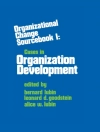For over a century, developmental disabilities have been associatedwith crime in prejudicial and pejorative contexts.
Offenders with Developmental Disabilities provides a balanced, comprehensive review of the prevalence, nature and development ofoffending by those with intellectual disabilities. Not only doesthis volume include coverage of evidence-based assessment andtreatment ideas, strategies and plans, but also places the field ina historical, legal and ethical context.
William Lindsay, John Taylor and Peter Sturmey have broughttogether a wealth of contributors from differing backgrounds toshare new material and knowledge of assessments, treatment, andservice issues in a single volume. Divided into five parts, Part Iopens with theoretical issues; Part II deals with legal andservices contexts including ethical concerns; Part III considersrisk assessment, general assessment and approaches to evaluation;Part IV addresses specific issues of sexual offending, anger andaggression, fire raising, dual diagnosis, female offenders andpersonality disorder; Part V concludes with service development, professional and research issues.
Forensic practitioners and students from psychology and psychiatry, lawyers and advocates, nurses and social workers will all find thiscomprehensive and practical book an inspiration in taking thisfield forward.
Inhoudsopgave
About the Editors page.
List of Contributors.
Series Editors’ Preface.
Preface.
PART I: THEORETICAL ISSUES.
1. Natural history and theories of offending in people withdevelopmental disabilities (William R. Lindsay, Peter Sturmey and John L. Taylor).
2. Criminal behaviour and developmental disability: anepidemiological perspective (Anthony J. Holland).
PART II: LEGAL AND SERVICE CONTEXTS.
3. Legal issues (George S. Baroff, Michael Gunn and Susan Hayes).
4. Pathways for offenders with intellectual disabilities (Susan Hayes).
5. How can services become more ethical? (Jennifer Clegg).
PART III: ASSESSMENT AND EVALUATION.
6. The assessment of individuals with developmental disabilitieswho commit criminal offenses (Edwin J. Mikkelsen).
7. Risk assessment and management in community settings (Vernon L. Quinsey).
8. Approaches to the evaluation of outcomes (Nigel Beail).
PART IV: TREATMENT AND PROGRAMME ISSUES.
9. Sex offenders: conceptualisation of the issues, services, treatment and management (William R. Lindsay).
10. Treatment of sexually aggressive behaviours in community andsecure settings (Michael C. Clark, Jay Rider, Frank Caparulo and Mark Steege).
11. Treatment of anger and aggression (John L. Taylor, Raymond W. Novaco, Bruce T. Gillmer and Alison Robertson).
12. Treatment of fire-setting behaviour (John L. Taylor, Ian Thorne and Michael L. Slavkin).
13. Offenders with dual diagnosis (Anne H.W. Smith and Gregory O’Brien).
14. Female offenders or alleged offenders with developmentaldisabilities: a critical overview (Kathleen Kendall).
15. The relationship of offending behaviour and personalitydisorder in people with developmental disabilities (Andrew H. Reid, William R. Lindsay, Jacqueline Law and Peter Sturmey).
PART V: SERVICE DEVELOPMENT, PROFESSIONAL AND RESEARCHISSUES.
16. Staff support and development (Anthony F. Perini).
17. Research and development (Peter Sturmey, John L. Taylor and William R. Lindsay).
Index.
Over de auteur
William R. Lindsay, Ph D, Consultant Forensic Clinical Psychologist, The State Hospital, Carstairs; Head of Clinical Psychology (Intellectual Disability) NHS Tayside & Chair of Learning Disabilities, University of Abertay Dundee, Dundee, UK
Bill Lindsay is Consultant Forensic Clinical Psychologist atthe State Hospital, Head of Clinical Psychology (Learning Disabilities) in Tayside and Professor of Learning Disabilities atthe University of Abertay, Dundee, Scotland. He is a practicingclinician, has over 150 publications, and has directed severalmajor research projects.
John L.Taylor, DPsychol, Head of Psychological Therapies&Research and Consultant Clinical Psychologist, Northgate & Prudhoe NHS Trust, Northumberland & Principal Lecturer in Clinical Psychology, Northumbria University, Newcastleupon Tyne, UK
Since qualifying as a clinical psychologist, John Taylor hasworked mainly in developmental disability and forensic services incommunity, medium secure, special hospital and prison settings inthe UK. In recent years he has published work related to hisresearch interests in assessment and treatment of offenders withdevelopmental disabilities in a range of research and professionaljournals.
Peter Sturmey, Ph D, Associate Professor of Psychologyin the Department of Psychology, Queens College and The Graduate Center, City University of New York & Research Associate at the Institute for Basic Research, Staten Island, USA
Peter Sturmey has published widely on intellectualdisabilities, especially in the areas of challenging behaviours, functional assessment, dual diagnosis and staff training.
His current research interests include restraint reduction, clientpreferences for staff members, mood disorders and dissemination ofbehavioural technology.












